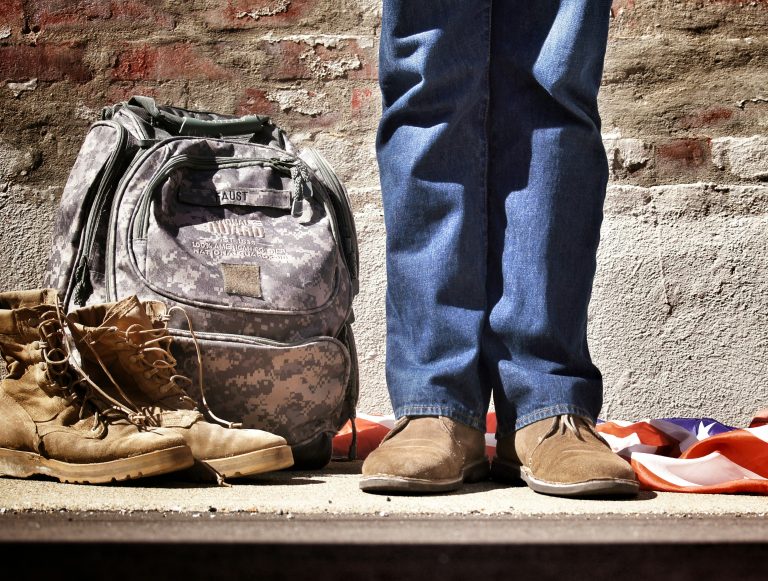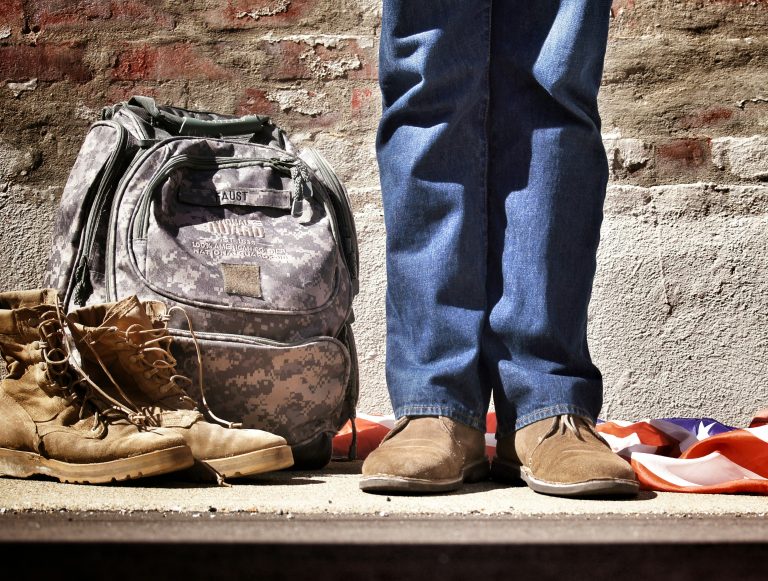Challenges of Transitioning
Leaving military life and entering the civilian world can pose significant challenges. Understanding these hurdles can help you navigate through this process more smoothly.
Unique Hurdles for Veterans
Transitioning from the military to civilian life comes with its own set of unique challenges. Many veterans face the risk of depression, homelessness, and an increased likelihood of encountering a crisis. Disabled veterans are especially vulnerable during this phase. Organizations like DAV offer free professional assistance to help you access healthcare, disability, education, financial benefits, employment opportunities, emergency grants, and local support. For more information, you can check out DAV.
| Challenge | Impact (%) |
|---|---|
| Unemployment post-discharge | 43 |
| Mental health disorders | Higher rates compared to civilians |
Understanding these statistics highlights the importance of seeking support early in your transition journey. For example, nearly 20 million veterans in the U.S. encounter challenges related to health problems, employment issues, and accessing benefits immediately after service and in the years following (DAV).
Reintegration Difficulties
Adjusting back to civilian life can be difficult for many veterans. The rate of psychiatric disorders, such as mood disorders, posttraumatic stress, and personality disorders, tends to exceed those of their civilian peers. Younger individuals and those with lower ranks in the military often experience more significant reintegration difficulties (NCBI).
It’s also important to consider the impact on family dynamics. Spouses can play a crucial role in supporting you during this transition period, which may sometimes lead to marital discord or divorce due to changes in roles, financial aspects, and stature. This additional stress can further increase feelings of self-doubt or anxiety (Source).
Spouses can be a key support system during this time. Consider exploring our resources on military transition spouse support.
For additional reintegration support in healthcare and employment assistance, you can visit healthcare and benefits access and veterans employment assistance.
Navigating the complexities of this transition can be daunting, but recognizing these challenges and seeking the appropriate resources and support can make a significant difference in your journey from military to civilian life.
Check out our military to civilian transition guide for more comprehensive insights.
Leveraging Military Skills
Transitioning out of the military can be challenging, but your military skills can be a significant asset in civilian life. Let’s dive into two key areas: transferable leadership skills and financial management abilities.
Transferable Leadership Skills
Leadership skills acquired in the military are highly desirable in many civilian roles. Your confidence, ability to lead by example, and talent for motivating teams are invaluable. These traits are sought after in fields like education, business, and more (Northeastern University).
Here’s a snapshot of the transferable leadership skills you bring:
| Leadership Skill | Civilian Application |
|---|---|
| Confidence | Public speaking, team leadership |
| Leading by Example | Setting standards in corporate settings |
| Motivating Teams | Project management, human resources |
| Accountability | Ensuring project completion and success |
| Discipline | Maintaining deadlines and focused work |
Veterans are known for their commitment and sense of ownership, traits that are increasingly hard to find in civilian organizations (Mercury Business Services). If you’re looking to showcase these skills on your resume, visit our section on military service on a resume.
Financial Management Abilities
Managing finances in the military involves budgeting, financial management, and resource allocation. These skills are highly transferable to roles in finance, business, and management (Northeastern University).
Key financial management skills include:
| Financial Skill | Civilian Application |
|---|---|
| Budgeting | Financial planning, accounting |
| Resource Allocation | Logistics, supply chain management |
| Financial Responsibilities | Corporate finance, payroll management |
| Strategic Planning | Business strategy, project budgeting |
Your disciplined approach to finances and resource management can set you apart in the civilian workforce. For resources to assist in your job search, explore veterans employment assistance.
By leveraging your military skills, you can make a smooth and successful transition into civilian roles. Explore more on this topic by reading our military to civilian transition guide and find success factors, skill translations, and more.
Valuable Traits for the Workplace
Transitioning out of the military involves honing in on traits that will be valuable in civilian roles. Your military background equips you with numerous skills that can be advantageous in the workplace. Let’s explore a few key traits that can make a significant difference.
Self-Sufficiency Skills
Veterans possess exceptional self-sufficiency skills developed during their service. These skills include taking responsibility for actions, seeing tasks through to completion, and working independently towards achieving goals. In a civilian job, these abilities are highly valued as they translate to a strong work ethic and reliability.
| Self-Sufficiency Traits | Workplace Benefit |
|---|---|
| Responsibility | Accountability in tasks |
| Task Completion | Dependable performance |
| Independent Work | High productivity |
For further guidance on leveraging these skills, consult our military to civilian skills translation resource.
Effective Communication Abilities
Communication is a cornerstone of military training. Veterans are trained to communicate respectfully and clearly with individuals from diverse backgrounds. This skill is valuable in any workplace and can aid in advancing into leadership roles.
Whether conveying complex ideas or instructions, effective communication ensures smooth operations and team cohesion. For more on integrating communication skills into your job search, visit our military job search strategies.
High-Demand Technical Skills
Veterans often possess technical skills such as software development and analytics, which are in high demand in the job market. Job growth in technical fields is expected to continue rising (Northeastern University).
| Technical Skill | Job Market Demand |
|---|---|
| Software Development | High |
| Data Analytics | Growing |
| IT Support | Consistent |
Securing a job that utilizes your technical expertise can set you up for a promising career. For more assistance related to employment, check out our veterans employment assistance section.
Leveraging self-sufficiency, effective communication, and high-demand technical skills can make your transition smoother and more successful. For more detailed resources, explore our military transition workshops and military transition mentor programs.
Support for Veterans
Transitioning out of the military involves navigating multiple challenges, but you don’t have to do it alone. Various support systems are in place to ensure you have the assistance needed to move forward successfully. This section will highlight two key areas of support: professional benefits advocates and continuous assistance and advocacy.
Professional Benefits Advocates
Navigating the complex system of benefits and policies can be overwhelming, especially when you’re transitioning from military to civilian life. That’s where professional benefits advocates come in. Organizations like Disabled American Veterans (DAV) provide expert advocates across the U.S. and Puerto Rico who can help you file claims and manage appeals. They offer invaluable support, helping veterans and their families obtain significant resources.
| Metrics | Data |
|---|---|
| Claims Filed by DAV | Over 209,300 |
| Benefits Obtained by Veterans | $28.4 Billion |
| Veterans Assisted | Over 1 Million |
For more detailed guidance on navigating benefits, read our military transition benefits explained.
Continuous Assistance and Advocacy
Post-service life can present challenges such as health problems and employment issues, making continuous assistance and advocacy crucial. Nearly 20 million veterans in the U.S. encounter these struggles immediately after service and in the years that follow. Organizations like DAV are committed to providing ongoing support to help you address these challenges positively.
- Healthcare Access: Ensuring you receive the healthcare benefits you are entitled to.
- Employment Assistance: Helping you find suitable employment opportunities through resources like veterans employment assistance and veterans job transition.
- Navigating Systems: Assisting you in understanding and accessing various benefits and services.
The continuous support ensures that you have the required tools and guidance to integrate successfully into civilian life. Explore more on ongoing support through programs like military transition support groups and military transition mentor programs.
By leveraging professional benefits advocates and ongoing assistance, you can navigate the complexities of transitioning out of the military more smoothly. For additional resources and guidance, visit our military to civilian transition guide.
Reintegration Support
When transitioning out of the military to civilian life, support systems are crucial in assisting veterans with adapting to new environments and challenges. Below are key areas of reintegration support:
Healthcare and Benefits Access
Accessing healthcare and benefits is often a top priority for veterans. Navigating the complexities of the benefits system can be daunting. Many organizations, like DAV, have professional benefits advocates who help veterans file claims and manage appeals. Over 209,300 claims were filed with DAV’s assistance, resulting in veterans and their families receiving more than $28.4 billion in benefits.
| Support Provided | Claims Filed | Benefits Obtained |
|---|---|---|
| DAV | 209,300+ | $28.4 Billion |
Visit military transition benefits explained for more info.
Employment Assistance
Employment can also pose significant challenges post-service. Veterans may encounter difficulties translating their military skills into civilian roles, facing employment issues in the process (PubMed Central). Organizations like DAV have been instrumental in supporting over 1 million veterans in finding and securing employment in the past year.
To further assist, there are various resources and programs such as the military transition assistance program and veterans job transition to help you prepare your resume, prepare for interviews, and connect with potential employers.
Navigating Complex Systems
Navigating the complex systems and policies related to veteran benefits and services requires persistence and knowledge. With the help from advocacy organizations, veterans can more effectively access the resources they need. For instance, DAV’s continuous assistance and advocacy have significantly benefitted countless veterans and their families.
Understanding the company, its policies, and networking within the organization is crucial for a productive job search (PubMed Central). Explore more support resources like veteran transition resources and military transition networking tips to navigate this complex landscape better.
For additional support in healthcare, employment, and navigating systems, check out our detailed military to civilian transition guide.
Success Factors in Civilian Roles
Transitioning out of the military can be an exciting yet challenging journey. Understanding the key success factors in civilian roles can help you make a smoother transition and capitalize on your unique set of skills and experiences.
Transferable Skills Overview
Veterans possess numerous transferable skills that are indispensable to modern organizations. Whether it’s teamwork, bias for action, discipline, accountability, adaptability, organizational skills, or leadership qualities, these skills are highly valued across various industries (Mercury Business Services).
Top Transferable Skills:
| Skill | Description |
|---|---|
| Teamwork | Ability to work well within a team, often under high pressure. |
| Bias for Action | Proactive approach to solve problems and complete tasks. |
| Discipline | Strong sense of duty, punctuality, and adherence to rules and procedures. |
| Accountability | Owning tasks and taking responsibility for outcomes. |
| Adaptability | Flexibility to adjust to new environments and challenges. |
| Leadership | Skills like confidence, leading by example, and motivating teams (Northeastern University). |
To really shine in your new role, it’s essential to understand how these skills translate to the civilian workplace. Check out our detailed guide on military to civilian skills translation.
Veterans in the Workforce
Veterans bring beneficial qualities to their civilian careers, such as adaptability, mission orientation, discipline, work ethic, and decisiveness. They are seen as more flexible, dedicated, resilient, and able to prioritize tasks. These qualities make veterans highly attractive candidates for a variety of roles, from corporate settings to entrepreneurial ventures.
Popular Sectors for Veterans:
- Finance and Business: Leverage your financial management abilities, such as budgeting and resource allocation (Northeastern University).
- Education: Utilize your leadership skills to inspire and guide students.
- Healthcare: Apply your discipline and adaptability in fast-paced medical environments.
- Technology: Use your high-demand technical skills acquired during service.
Here is a look at some industries where veterans thrive:
| Industry | Roles for Veterans |
|---|---|
| Finance | Financial Analyst, Budget Manager |
| Education | Teacher, School Administrator |
| Healthcare | Nurse, Healthcare Manager |
| Technology | IT Specialist, Software Developer |
For more detailed job options, explore our list of jobs for ex-military personnel.
It’s essential to present your military experience effectively on your resume. We have resources to help you with military transition resume writing services and military transition cover letter examples.
Navigating the complexities of transitioning from military to civilian life may feel daunting, but you’re not alone. Take advantage of our comprehensive military to civilian transition guide to ensure you have all the information and support you need for a successful transition.
From leveraging your military expertise in new career paths to mastering job search strategies, the journey to your next chapter starts with understanding and showcasing your valuable skills. To further facilitate your transition, consider utilizing veterans employment assistance and participating in military transition workshops.







